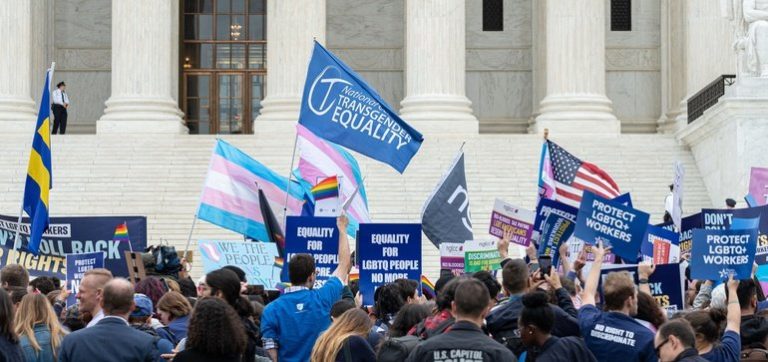

Dive Brief:
- The U.S. Department of Justice will “vigorously enforce” federal prohibitions on discrimination based on sexual orientation and gender identity, an agency official said April 8 during an American Bar Association conference.
- Specifically, “we’re going to work to identify areas where we can do investigations and look for employer policies that deny equal employment opportunities to LGBT individuals,” said Pamela S. Karlan, principal deputy assistant attorney general for the agency’s Civil Rights Division. DOJ will be looking at policies regarding health care and bathrooms, among other things, she added.
- Karlan identified a few other enforcement priorities for the agency, including Uniformed Services Employment and Reemployment Rights Act noncompliance; physical fitness and paper tests for public safety jobs that may have a disparate impact on protected groups; and workplace sexual harassment.
Dive Insight:
DOJ is tasked with enforcement of some nondiscrimination mandates for the public sector, while EEOC generally has responsibility for the private sector. The latter, an independent agency, has long taken the position that because Title VII of the Civil Rights Act of 1964 prohibits discrimination based on sex, it also necessarily prohibits discrimination on the basis of sexual orientation and gender identity.
That question made its way to the U.S. Supreme Court and in 2019 the two agencies found themselves making opposite arguments to the Court, with DOJ representing the Trump administration’s position against coverage. The Court sided with EEOC in that case, Bostock v. Clayton County, Georgia, finding that Title VII prohibits employers from taking adverse employment actions against employees because of their sexual orientation or gender identity.
A shift in DOJ’s stance was likely given that ruling and President Joe Biden’s request that agencies reevaluate their positions in light of Bostock. Just days before Karlan’s statements, for example, the U.S. Department of Education said it would recognize sexual orientation and gender identity as protected classes under Title IX of the Education Amendments of 1972.
Even before Bostock delivered clarity, however, employment law attorneys generally recommended that employers refrain from discrimination based on sexual orientation and gender identity.